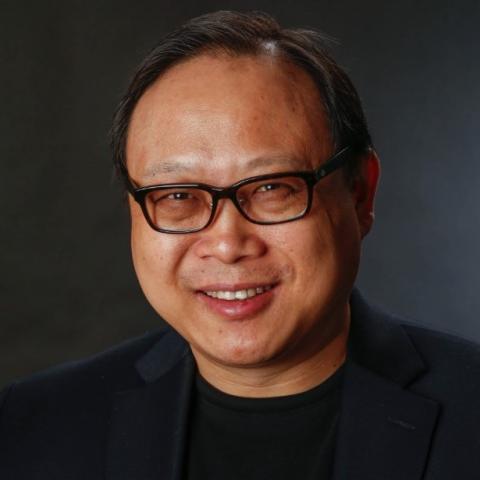AI + Health Seminar: Clinical Deployment of AI: From Single Models to Compound Agentic Systems
Steve B. Jiang, Ph.D., University of Texas Southwestern Medical Center
Steve B. Jiang, Ph.D., University of Texas Southwestern Medical Center

Join us for an AI + Health Seminar with Steve B. Jiang, Ph.D., David A. Pistenmaa, M.D., Ph.D. Distinguished Chair in Radiation Oncology, Medical Artificial Intelligence and Automation Lab and Department of Radiation Oncology, University of Texas Southwestern Medical Center. The AI + Health Seminar Series is every second Thursday during the Fall semester.
Date: September 11, 2025, noon to 12:30 via Zoom: https://utexas.zoom.us/j/5128555388.
Title: Clinical Deployment of AI: From Single Models to Compound Agentic Systems
Abstract: Artificial intelligence has demonstrated remarkable promise across healthcare, yet the majority of published models never make it into clinical use. The gap lies mainly in the challenges of clinical deployment. Integrating AI into clinical workflows that are complex, variable, safety-critical, and tightly regulated. At the UT Southwestern Medical Artificial Intelligence and Automation (MAIA) Lab, our mission is to bridge this gap by developing AI systems designed for real-world implementation. In this talk, I will first highlight examples of clinically focused AI research from MAIA Lab, including projects addressing workflow integration, automation, and safety monitoring. I will then turn to the next frontier: compound agentic AI systems. Unlike single-task models, these systems orchestrate multiple specialized agents into coordinated workflows that resemble a clinical expert panel. I will discuss ongoing projects in MAIA Lab, illustrating how they may move beyond proof-of-concept models toward scalable, trustworthy clinical AI. The central message is that the future of AI in healthcare depends not only on building better models but on building agentic ecosystems that are safe, adaptable, and clinically deployable. This shift opens exciting opportunities for collaboration between computer science researchers and clinical innovators, with healthcare as a proving ground for the next generation of AI systems.
Speaker Bio: Dr. Steve Jiang received his Ph.D. in Medical Physics from Medical College of Ohio in 1998. After completing his postdoctoral training at Stanford University, he joined Massachusetts General Hospital and Harvard Medical School in 2000 as an Assistant Professor of Radiation Oncology. In 2007, Dr. Jiang was recruited to University of California San Diego (UCSD) as a tenured Associate Professor to build Center for Advanced Radiotherapy Technologies, for which he was the founding and executive director. He was then promoted to Full Professor with tenure in 2011. At UCSD, Dr. Jiang pioneered in utilizing GPU for healthcare supercomputing, with his team developing over 40 toolkits to speed up medical imaging and cancer radiotherapy tasks. In October 2013, Dr. Jiang joined University of Texas Southwestern Medical Center as a tenured Full Professor, Barbara Crittenden Professor in Cancer Research (until 2025) and David A. Pistenmaa, M.D., Ph.D. Distinguished Chair in Radiation Oncology (starting 2025), Vice Chair for Digital Health and AI of Radiation Oncology Department, and Director of Medical Physics and Engineering Division. Dr. Jiang is a Fellow of Institute of Physics, American Association of Physicists in Medicine, and American Institute of Medical and Biological Engineering. Dr. Jiang's research in various areas of cancer radiotherapy has been funded by federal, state, charitable, and industrial grants for over 20 million dollars, resulting in close to 300 peer-reviewed journal papers with an H-index of 94. His current research interest is on the development and deployment of artificial intelligence technologies to solve medical problems. He is the founding director of Medical Artificial Intelligence and Automation Laboratory at UT Southwestern. He has supervised over 30 postdoctoral fellows and 15 Ph.D. students.